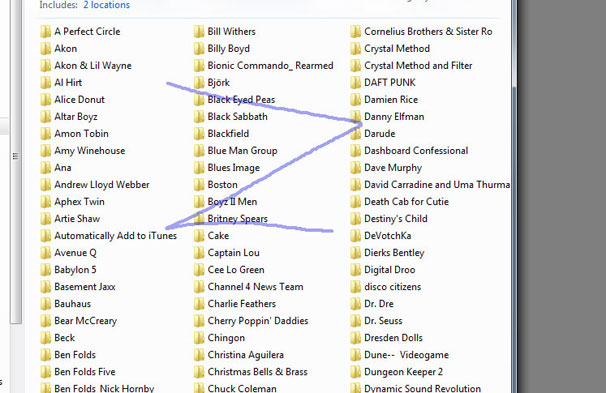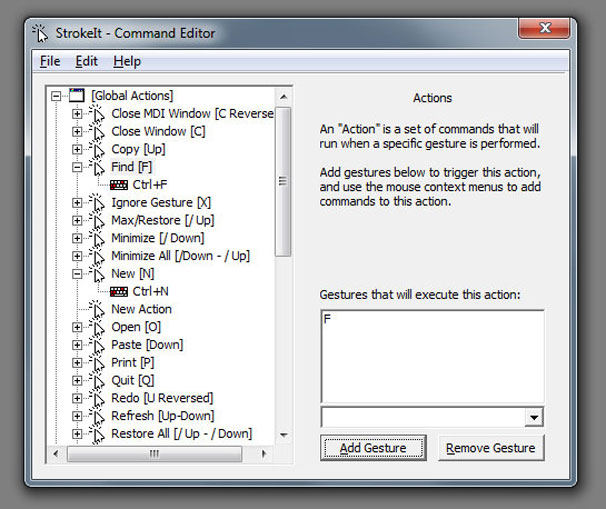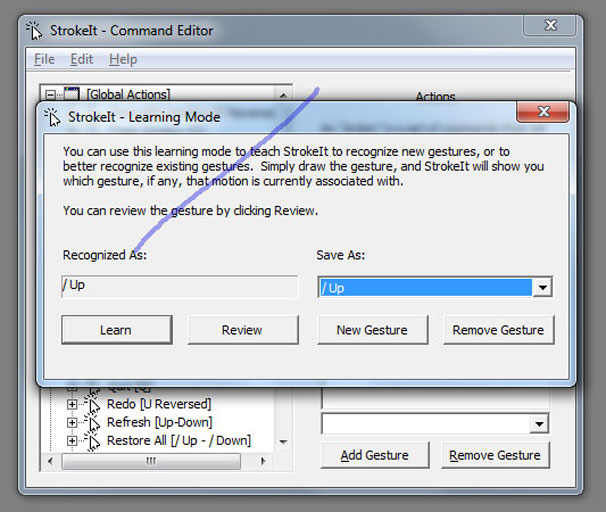Save time through hotkey, macros and mouse gestures
Network administration - Hotkeys, macros and mouse gestures are very useful for computers. In this article we will show you how to set up and use them for the purpose of saving time and convenience.
Hotkey
There are two basic ways to automate one-button for standard keyboards with hotkeys and macros. A hotkey is a button that activates an action such as opening a folder, executing an application or stopping a song that is being opened. Meanwhile macros (like macros in Microsoft Excel) are a series of programmed actions that appear one at a time (or launch a macro through a related program).

We will start with hotkeys. The free WinHotKey application is an application that helps us accomplish our mission, which has a lot of customization and simplicity in use. When installing the application and navigating to the tutorial windows, you will see a list of hotkeys that have been configured for your system. If you want to use them, you don't do anything here, if you want to delete them, you can do so by checking and clicking Remove Hotkey .
When you want to create a new hotkey, click the New Hotkey button. The first thing you need to enter in the field provided is the description. When finished, note that the application will give you some options like a real keystroke: It does not allow you to overwrite an existing hotkey in the program, but you can temporarily record Override any default Windows hotkey - such as Ctrl-C - to perform copy action.
Please note that you should assign a key combination for new hotkeys. When you're done, choose your action via the 'I want WinHotKey to .' menu . By default, WinHotKey will load when Windows starts, so your customized hotkeys will take effect for the session back then.
Macro

We already know how to set up hotkeys, but this section is going to look at a more powerful technique, the macro.AutoHotkey is a freeware application that helps us make this easy.
When installing the application, the program will ask if you want to load the default hotkey script; confirm that you want to do so. AutoHotkey is a script-based program so that there is no user interface to assign macro actions, you need to enter your actions using the appropriate code. This may sound a bit complicated, so let's start from simple things.
The first line does not start with a ';' - comment sign - for example '#z :: Run www.autohotkey.com.' In this case, the hotkey labels are preceded by two colons (: :), indicating 'pressing the left key to activate the command to execute on the right', to get this list of labels, You can refer to the link here. In the example, the '#' symbol is similar to the Windows key. So, whenever you press the Windows and z keys simultaneously, your system will launch AutoHotkey Website.
To deepen multiple actions into one trigger - used to run an application (such as " Run Notepad ") or a file (like " Run c: file.doc ") or even an email link ( like " Run mailto: test@test.tst ") - you just need to list them on the distinguished lines with the word "return" at the end of the program. Then turn off the AutoHotkey application (you'll see it running in the Windows taskbar) and your macro string will work right away.
To learn more from the examples and instructions, you can refer to the following link.
Mouse gestures

Set mouse gestures to activate computer actions. As you might expect, building automated actions based on a mouse is more difficult because it has only two nodes (possibly a middle button). One way we don't use mouse buttons is to use mouse drawing capabilities, however, so that you can convey the action of lines and shapes on the screen into a series. the hotkey.
First, install the free application StrokeIt . When launching the application, the mouse pointer will appear in the system bar. Now hold down the right mouse button anywhere on the screen and move the mouse around a bit. Now the mouse becomes a digital pen and the program StrokeIt will use its gesture to analyze it with pre-defined automatic actions.

Configure actions in StrokeIt. For example, drawing a C on any window will help you close the program; marking text and drawing a line from the bottom up will help you copy the text to the clipboard; sketching an E will open Windows Explorer window, etc. Even StrokeIt allows you to assign other gestures to other programs.

Learn more about Mode will allow you to put new gestures in StrokeIt. If you want to create your own mouse gestures for an action, simply highlight the Global Actions tree, click the Edit menu and select Learn Gestures . Draw with your right mouse button, then StrokeIt will tell you whether the gesture is already inside its database. If not, save your action by clicking the New Gesture button. You can then assign this gesture to any existing action within the application. If you are ambitious, you can customize new applications and new actions.
